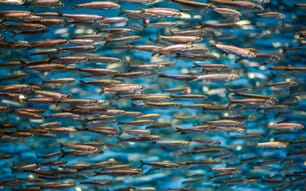These are habitats mentioned in the fishing regulations in force since 2006, for which the Government had not provided effective protection notwithstanding the fact that they are continuously subject to degradation because of illegal fishing.
“After years of battle, the summits of the Ausias March and Emile Baudot seamounts will be protected, as well as the impressive coral reef located east of Cabrera, known as Fort d’en Moreu, where a vast Mediterranean kelp forest, also protected by environmental laws, grows,” explained Xavier Pastor, Executive Director of Oceana in Europe.
“These three locations should have been closed to trawling and other aggressive practices the moment coralligenous communities and rhodolites were found there, as is the case in many other areas, like the Migjorn Marine.”
The legislation in force prohibits aggressive fishing over phanerogams, coralligenous communities and rhodolites, but the lack of a precise delimitation of the presence of these habitats on the sea bottom has served as an excuse to allow an illegal fishing activity. Oceana has repeatedly issued warnings concerning this situation, which has been done with full knowledge of people directly and indirectly responsible for the management of the sea, from Brussels to Madrid, passing through the government and fishermen themselves.
Oceana’s proposal not only recommended the application of the law to these beds, but also the protection of other environmentally relevant habitats located at greater depths, that are equally important for the conservation of fishing resources in the Spanish Mediterranean Sea. Other habitats have been left out from the Government’s proposal, but are included in Oceana’s proposal for the mountains and surroundings of the National Park of Cabrera.
“All areas containing coralligenous communities and rhodolites in the Mediterranean will be closed off to activities that deteriorate them, but it is also of the utmost importance for fishing to conserve the few areas with Bamboo Gorgonians (Isidella elongata), giant sea pens (Funiculina quadrangularis), crinoids or brachiopods, and a long list of other habitats. Many of them are outside the areas that Spain is going to close now and their conservation is essential for fishing species like prawn and hake, as well as for several protected species,” pointed out Ricardo Aguilar, Director of Research of Oceana Europe.


